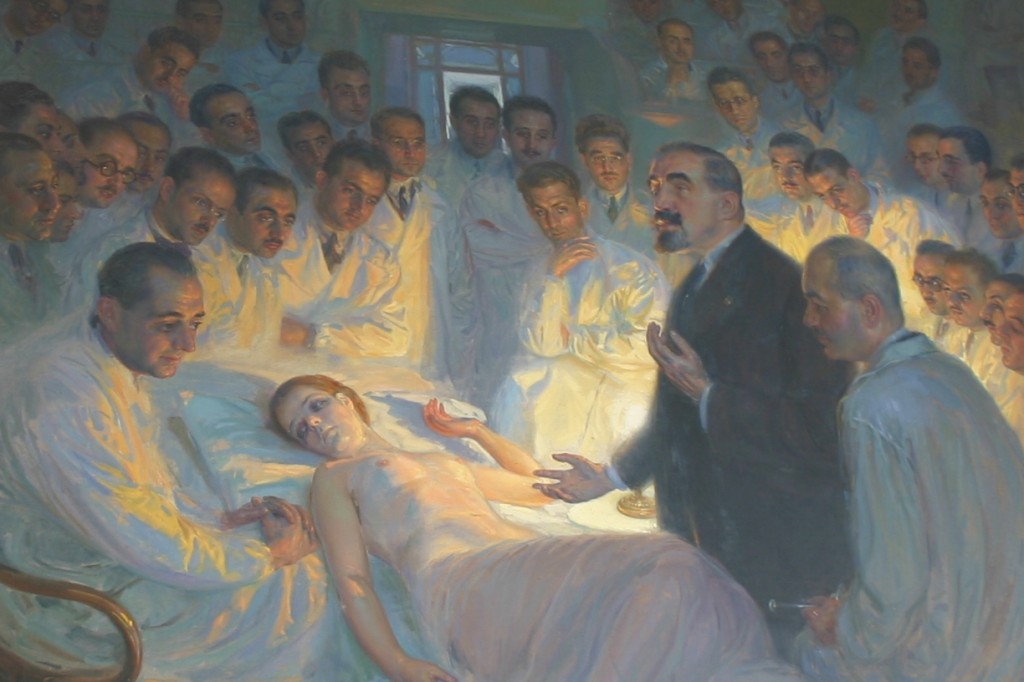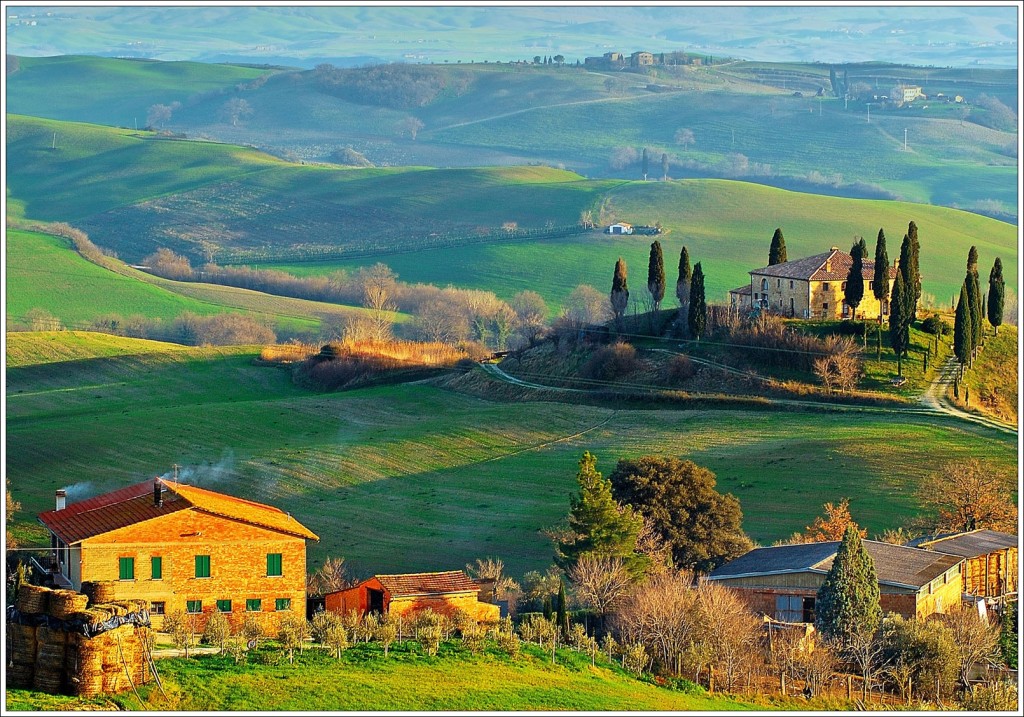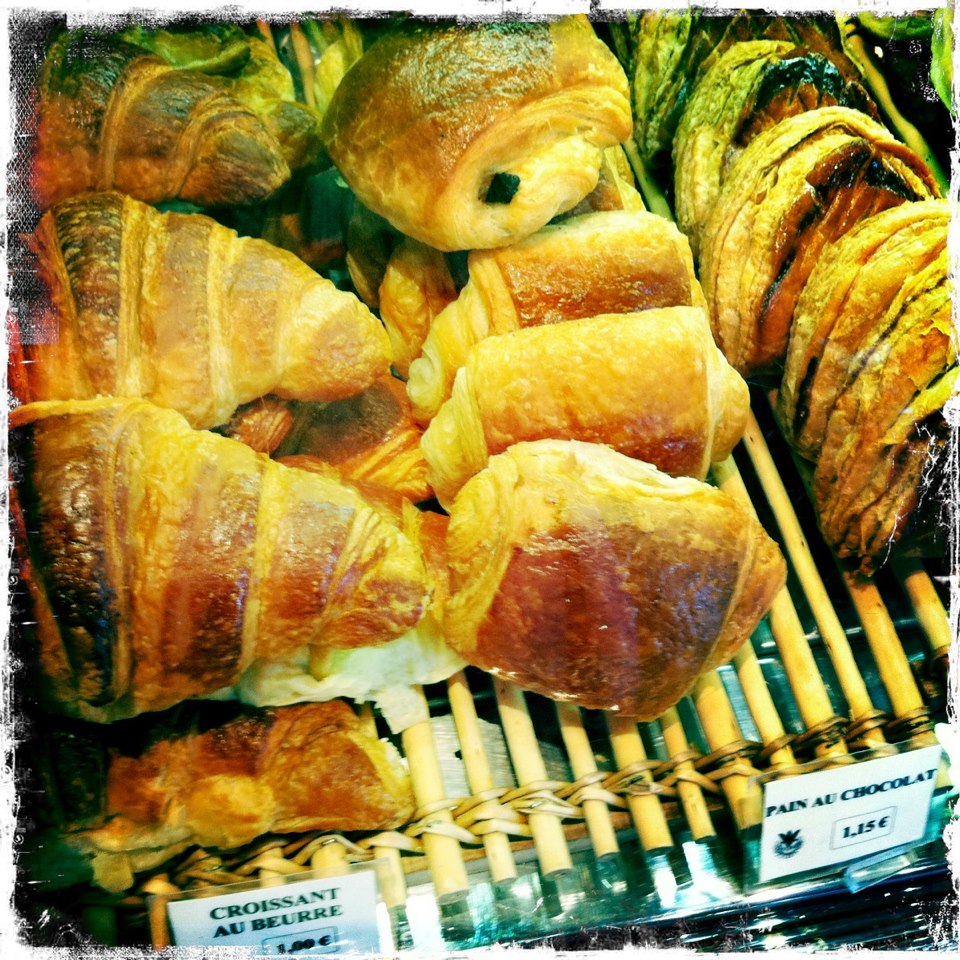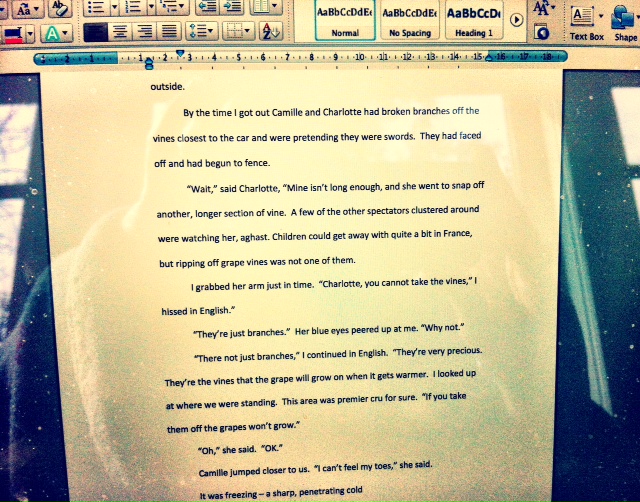 My yearly exam was not something I looked forward to any more than any other woman. Still, having to go through all of that in French and when I was not sure of exactly how things worked with one’s gynecologist in France…this added a whole new element of the unknown. Uncertainty was not always a bad thing, but it was not something I particularly wanted to experience at a gynecological appointment.
For example, Franck’s mother had informed me the night before that gynecologists were not referred to as “docteur” in France, but as Monsieur or Madame. Voilà! There was one potential faux pas narrowly averted right there. How many more were lurking in the treacherous path between the receptionist and the stirrups?
My yearly exam was not something I looked forward to any more than any other woman. Still, having to go through all of that in French and when I was not sure of exactly how things worked with one’s gynecologist in France…this added a whole new element of the unknown. Uncertainty was not always a bad thing, but it was not something I particularly wanted to experience at a gynecological appointment.
For example, Franck’s mother had informed me the night before that gynecologists were not referred to as “docteur” in France, but as Monsieur or Madame. Voilà! There was one potential faux pas narrowly averted right there. How many more were lurking in the treacherous path between the receptionist and the stirrups?
Embarrassingly, I still hadn’t completely overcome my phobia of doctors, particularly foreign doctors. Franck’s family doctor (and now our family doctor) in Burgundy, Le Père Dupont, had gained my trust with his tatty espadrilles, prodigious smoking habit, and rotund belly. Michèle and Stéphanie warned me that their gynecologist, Monsieur Le Courbac, was a completely different genre of doctor. He was technically competent, they assured me, but possessed the approximate warmth of hoar frost.
By the time I was ensconced in Monsieur Le Courbac’s waiting room, thumbing through the vast selection of Paris Match and Madame Figaro magazines, my fight or flight response was in full bloom. Pounding heart, dizziness, burning face, nausea, a sense of impending doom –all of the usual suspects were present and accounted for.
A tall gentleman wearing an impeccable white jacket over a suit materialized in the waiting room. He announced a woman’s name. A thin and elegant sixty-ish year old woman in capri pants and Hermès scarf got up from a chair near mine and followed him.
I had almost finished a long article in Madame Figaro about Charlotte Gainsbourg and her alluring husband Yvan Attal when the doctor appeared once again and called for “Madame Germain.” My heart made a strange thump as I shot out of my chair to follow him.
He didn’t say so much as bonjour until he was seated behind his desk – a sleek structure of shining metal and glass. Even the chairs were clear plastic and très à la mode. I sat down in one. They were also uncomfortable for all but the smallest of skinny French derrières.
“What can I do for you Madame Germain?” he asked in a disinterested voice.
I noticed then that he was wearing a silk neck scarf, or foulard. There was something deeply disconcerting about finding that urbane article of male clothing on my gynecologist. Whereas Le Père Durand ‘s tatty espadrilles eliminated my fear, Monsieur Le Courbac’s foulard ramped up my heart rate. He watched me, waiting, with icy blue eyes.
“I just moved here from Canada a few months ago,” I stumbled over my French. “I didn’t have the chance to have my yearly physical before I left. My sister and mother-in-law are patients of yours, so I made an appointment.”
I realized belatedly that I had used the informal “tu” form instead of the “vous” which I imagined was de rigeur in conversations with one’s gynecologist. I always found myself slipping into “tu” without realizing it whenever I was under pressure. It was, after all, far easier to conjugate.
Monsieur Le Courbac narrowed his eyes at me for a few moments before opening what looked like an empty file on his desk with a plain piece of paper stuck inside. “Do you smoke Madame Germain?”
“No.”
“How much do you weigh?”
Definitely more than his previous patient – I was certain of that - but I actually had no idea. “I’m not sure.”
“Any major health problems?” He made no eye contact and did not so much as crack a smile. I began to shiver...the hoar frost effect.
“No.”
“Children?”
“Two daughters. Two and four years old. They were both born by C-section.”
His Mont Blanc pen stilled. “Why was that?”
“My first one was…” I struggled to come up with the French words for ‘coming out feet first’ and mangled my explanation. “The second was just…kind of….” My hands flapped in bizarre movements as I tried to convey my answer. “She was positioned in a diagonal fashion…she wasn’t coming out…she was…you know… stuck.” I realized belatedly that I had used “tu” again instead of “vous.”
He raised a brow at me, then scribbled a few more things on his piece of paper. “Please go in the next room and remove your clothes.”
My face was on fire. I knew in an abstract way that a human body was just a human body, but hadn’t I already been humiliated enough for one day? Did I really have to take off all my clothes and get into a examination gown now? Maybe the French version would be more stylish and self-explanatory than the Canadian one. At every annual physical back home I would find myself sweating bullets over whether the ties were supposed to go at the back or the front.
I somehow managed to get myself up from the chair and walk into the next room, which was large and bare except for an examination table.
“You can remove your clothes in the cabine,” the doctor said, gesturing behind his head to a little room just off the main examination room. The cabine, I noticed immediately, appeared to be lacking a door or even a curtain. Luckily Monsieur Le Courbac was still sitting at his desk with his back turned.
“Merci,” I said, trying to sound nonchalant, as though it was an everyday occurrence for me to disrobe a few feet away from a disapproving man wearing a foulard.
I put down my purse on the floor and removed my jacket. All I could see in the room was a wooden stool, a coat hook, and a digital scale. No gown. Now where would they hide the gowns in France? Was there some secret drawer or compartment that I was supposed to know about? Maybe you supposed to bring your own, like the bags at the grocery store.
“Pardon,” I called out. “I think you have forgotten to leave a gown for me.”
Monsieur de Courmac swiveled around in his chair and eyed my still-fully-clothed self. “There is no gown.” He swiveled back to his file.
No gown? How was I supposed to get from the changing cabine to the examination table? It looked like a long, lonely walk to take naked.
“Have you removed all of your clothes Madame Germain?” the doctor askeda few seconds later, impatience coloring his words.
"Non," I said.
“Please let me know when you do, and don’t go to the examination table right away. I need to weigh you first.”
I noticed a scale on the floor by my feet. So he was going to come in this tiny little room and weigh me once I was naked? “OK,"I said faintly, stripping off my clothes. A terrible thought occurred to me - what if I had understood him incorrectly and I wasn’t supposed to be completely naked at this juncture? That was the awful part about conducting your life in a second language - living in fear of misunderstanding some absolutely crucial piece of information
"I'm ready," I said, my voice barely a whisper.
When the doctor walked into the cabine, I was still debating whether to sit on the stool or remain standing. More importantly, where was I supposed to put my hands?
“Please stand on the scale Madame Germain,” the doctor said, making no eye contact, dieu merci. Part of me was very relieved at this, but the other part of me wished he would so I could get a clue of whether I was doing this right or mortifyingly wrong.
I stood up on the scale. He peered down at the number after it beeped and scribbled something on his piece of paper. He went into the exam room and sat on a little stool at the foot of the exam table.
“Please come to the exam table Madame Germain,” he said.
I took a tentative step into the exam room and then decided that I was fed up with feeling cowed and intimidated. I was naked anyway - how much more embarrasing could this get? People could only intimidate me if I let them, I reminded myself. Surely this rule applied, clothes or no clothes. I strode across the room and hopped up on the table.
“Please lie on your back,” he intoned and I lay down.
I quickly noticed that there was a cluster of comics and quotes taped on to the ceiling just above my head. It was, I thought, strangely considerate of Monsieur Le Courmac to supply strategically placed reading material for his patients.
“Everything has been figured out, except how to live,” I read, a quote by Jean Paul Sartre and compared it to,“I may be no better, but at least I am different” attributed to Jean-Jacques Rousseau. The quotes were certainly effective distraction. Being naked somehow made them more touching and more profound. I never expected to brush up on my French philosophy at the gynecologist’s office.
“Interesting quotes,” I said.
“Yes,” he said. “I choose them myself.”
This, for him I was learning, was a remarkably expansive answer. All of the doctors in Canada were gifted at making innocuous chit chat during a pelvic exam, talking about he weather, politics…anything expect what was actually going on. Monsieur Le Courbac clearly did not feel the onus of the conversation lay on his shoulders, yet maybe I could divine something about him from his choice of quotes. I contemplated a Pierre Deproges quote, “Culture is like jam – the less we have the more we spread it around.” Was this what Monsieur de Courbac thought of New World countries such as the United States and Canada? Well, maybe we did have less history and perhaps less culture, but at least we had gowns at the gynecologist’s office.
“C’est fini Madame Germain,” the doctor pushed his stool away from the exam table. “You may go and put your clothes back on again.”
I walked tall back to the cabine but put my clothes back on with alacrity. I picked up my purse and went back to sit in one of the doctor’s uncomfortable chairs.
“Everything appears to be in order Madame Germain,” he said, neither reassuring me nor alarming me. “Come back and see me if you have any problems, or if not in one year’s time.”
“All right,” I said. “Merci.”
I watched as he wrote more things on my piece of paper, unsure of whether I had been dismissed or not.
He looked up at me after a few seconds. “You can leave now.”
I stood up. “I hope you have a good afternoon,” I said, trying to retain my dignity
It was only after I sped down the stairs and out into the crisp pre-winter air that I realized I had committed the cardinal sin of “tu-toie-ing” my gynecologist yet again.













